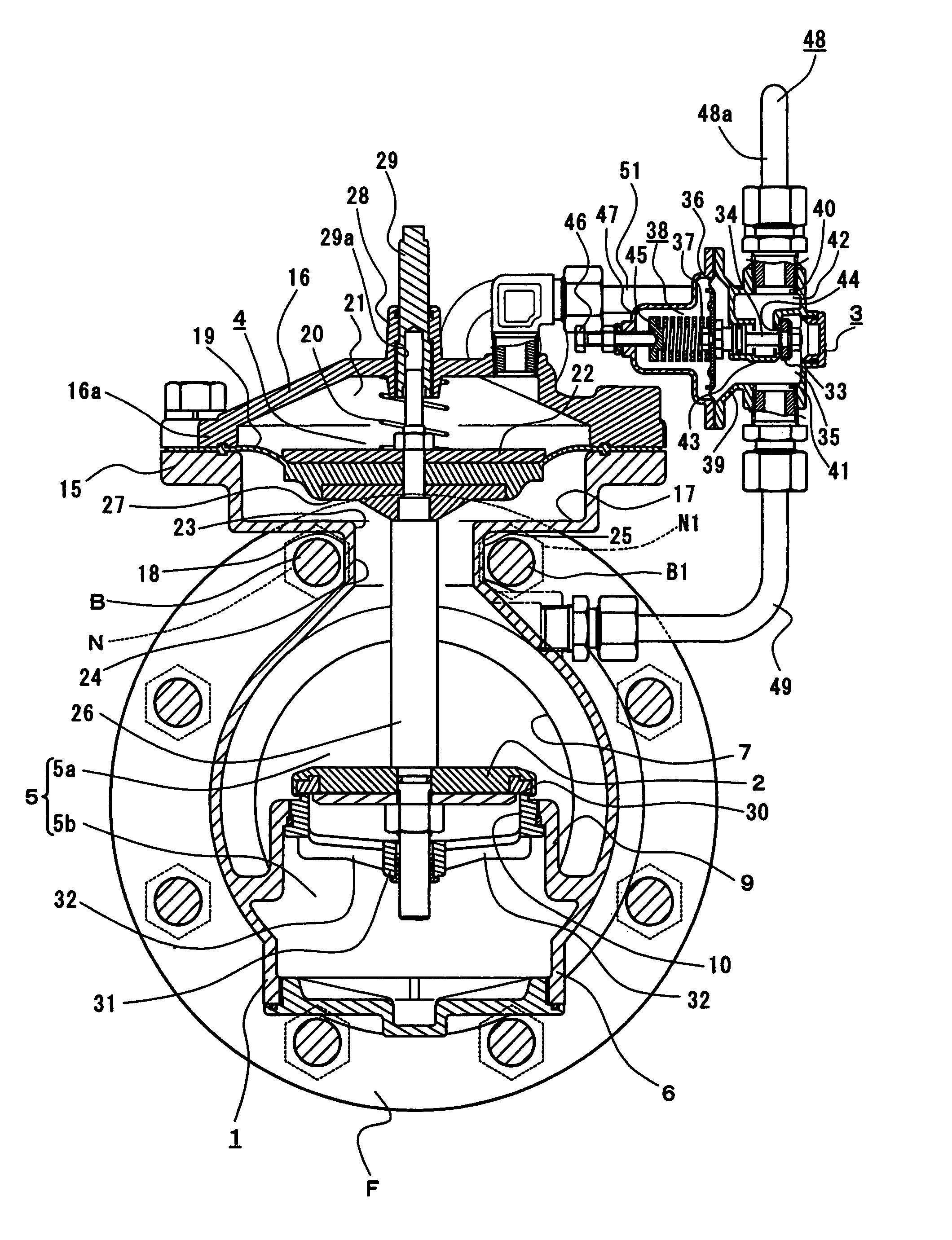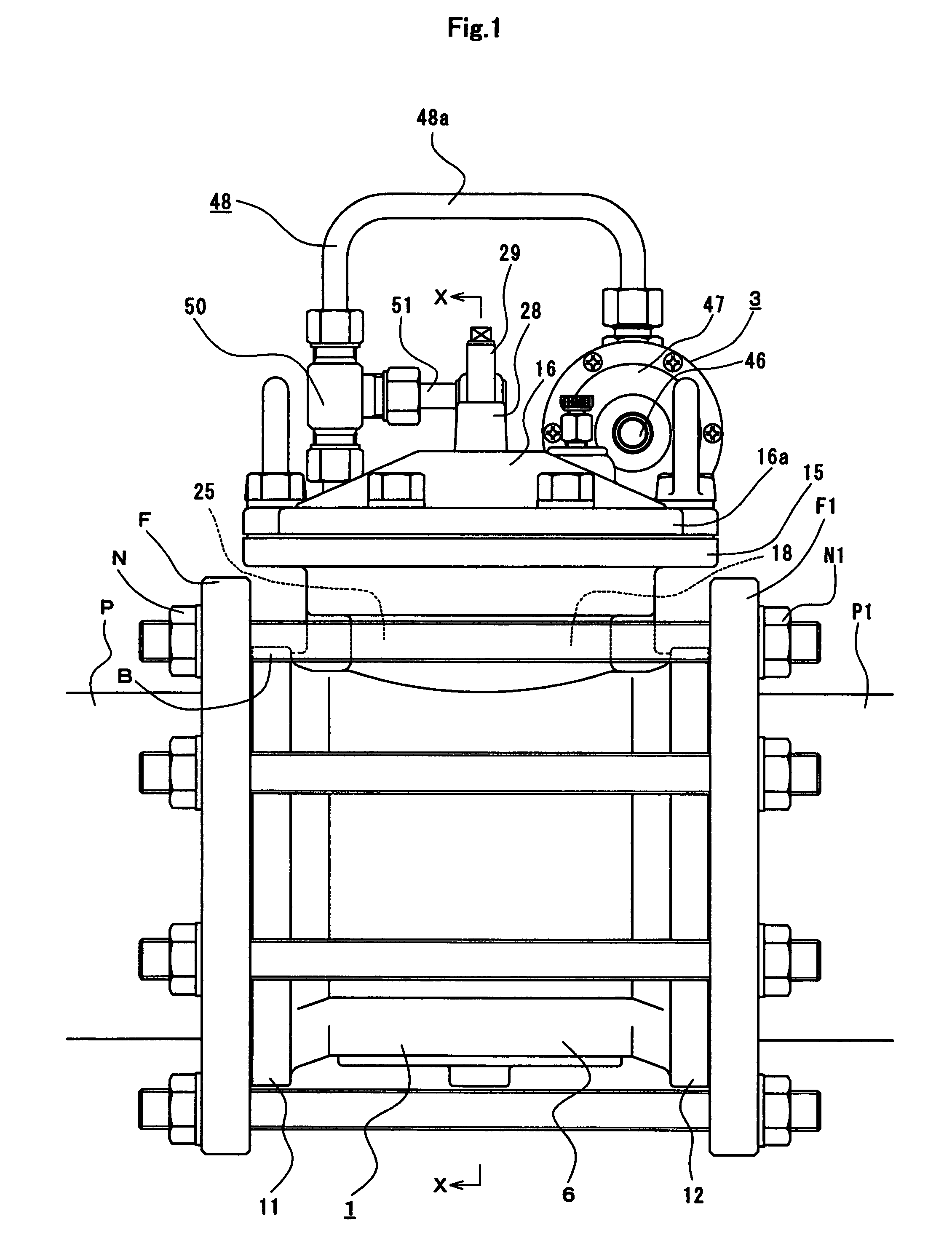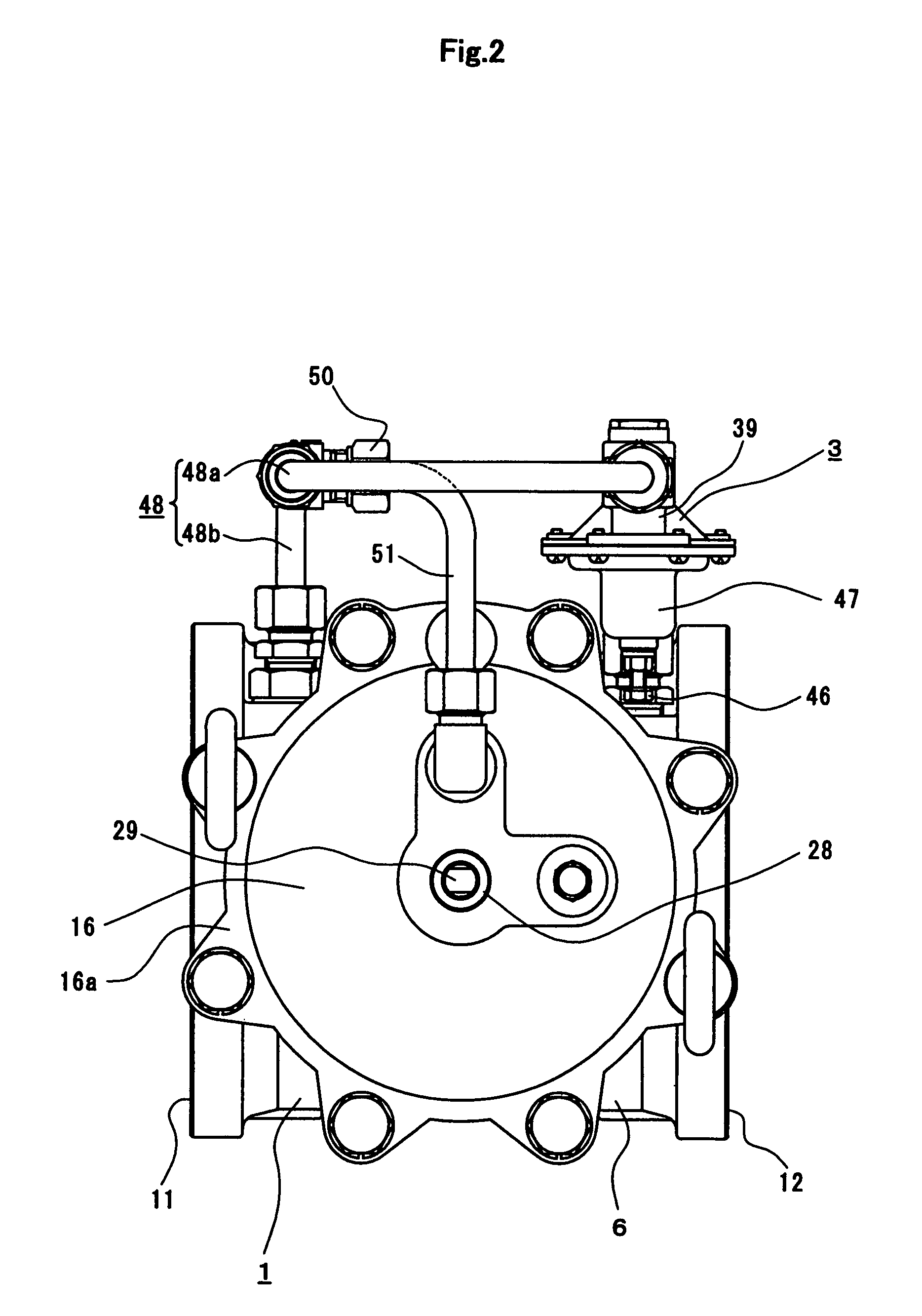Wafer-shaped pilot-type valve
a pilot-type valve and wafer-shaped technology, which is applied in the direction of valve housings, valve operating means/release devices, mechanical devices, etc., can solve the problems of increased manufacturing costs, no pilot-type valve which is also wafer-shaped, and the valve itself is heavy-weighted, so as to enhance the operation efficiency and facilitate the mation
- Summary
- Abstract
- Description
- Claims
- Application Information
AI Technical Summary
Benefits of technology
Problems solved by technology
Method used
Image
Examples
Embodiment Construction
[0020]This valve is a pilot (acting) type valve that opens and closes its main valve 2 enclosed in a main body 1 by controlling a pilot valve 3 to increase and decrease a driving force (i.e. a pressure difference between a primary side-pressure and a secondary side-pressure) required to actuate the main valve 2. Specifically, the illustrated valve is a pilot-type pressure-reducing valve, whose main valve 2 enclosed in the main body 1 arranged in a main pipe operates using a pressure difference between the primary side-pressure and the secondary side-pressure as a driving force. A pressure-reducing valve with an opening small in diameter having a force balancing mechanism is used as a pilot valve 3. A pressure controlled through the pilot valve 3 is fed to a driving portion 4 of the main valve 2, so that the main valve 2 connected with the driving portion 4 opens and closes a flow path 5 included in the main body 1 and communicating with the main pipe.
[0021]The main body 1 includes a...
PUM
 Login to View More
Login to View More Abstract
Description
Claims
Application Information
 Login to View More
Login to View More - R&D
- Intellectual Property
- Life Sciences
- Materials
- Tech Scout
- Unparalleled Data Quality
- Higher Quality Content
- 60% Fewer Hallucinations
Browse by: Latest US Patents, China's latest patents, Technical Efficacy Thesaurus, Application Domain, Technology Topic, Popular Technical Reports.
© 2025 PatSnap. All rights reserved.Legal|Privacy policy|Modern Slavery Act Transparency Statement|Sitemap|About US| Contact US: help@patsnap.com



